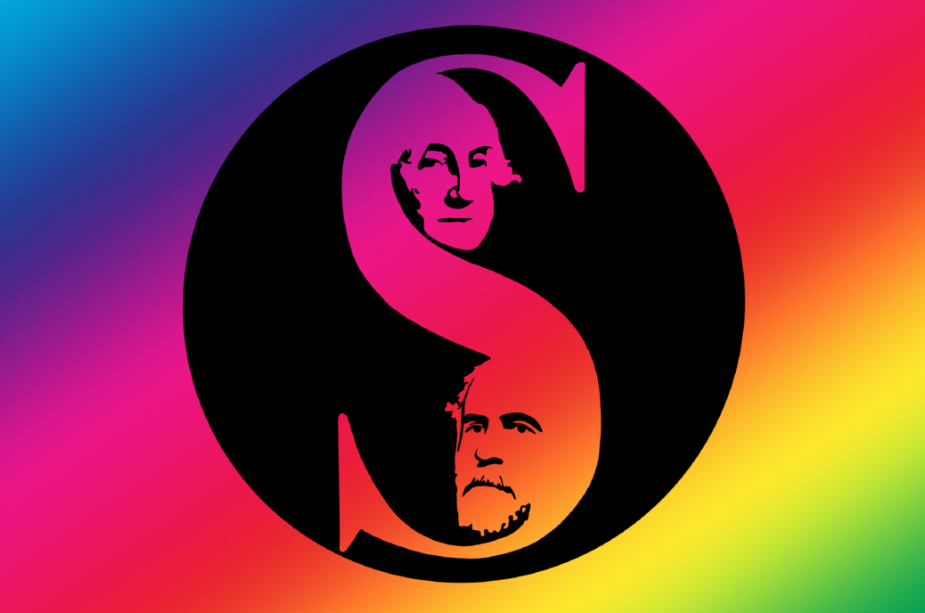Is The Spectator Going Woke?
Is The Spectator Going Woke?
Even from its eighteenth-century roots, conservatism includes a variety of perspectives
Leftist outrage against our articles and events is affirming — blowback indicates that we have successfully challenged their mores and opened the W&L community to a wider range of dialogue.
But our content at times also engenders criticism from the right, criticism which can insinuate that The Spectator is drifting leftward. One critic even bemoaned how we “have been thoroughly brainwashed” and are as “woke as [our] radical Marxist classmates.”
Where, then, does The Spectator stand? Is The Spectator still a conservative magazine?
Our answer is an unabashed “yes.” We remain committed to platforming conservative voices and promoting conservative causes.
The recent insinuations to the contrary stem in part from a misunderstanding as to what being conservative entails. Establishing the dimensions of conservatism shows how our variety of perspectives nonetheless upholds our heritage.
Conservatism is complex and nebulous, with no firm definition or creed. Conservatism can even be somewhat relative: what is conservative for one group can be radical for another.
The views of nearly any contemporary American conservative, for instance, would be anathema to defenders of the feudal order, the conservatives of the nineteenth century.
Since the stances which conservatives espouse vary with time and place, conservatism is far more an approach than a set of crystalized beliefs. Conservatism is a method rather than a particular set of outcomes.
That method is manifested chiefly through an intense skepticism toward change. Where radicals would remedy problems by replacing current social structures, conservatives take a wider view.
They question whether targeted institutions are, in actuality, the cause of a given problem: Does capitalism really cause inequality? Do Confederate monuments really perpetuate racism?
Empiricism helps here — conservatives are in that respect creatures of the Enlightenment.
They then question whether the proposed remedy will have the intended effect: Will adopting socialism actually lower inequality? Will removing Confederate monuments heal racial divisions?
Answering such questions also entails a hunt for unintended consequences, the costs of change which may be worse than the original problem. Perhaps adopting socialism will stymie improvements to the standard of living. Perhaps removing Confederate monuments will inflame far-right groups, worsening racial furor.
And to the conservative, unintended consequences can be myriad given how human formations are inherently elaborate and entangled. As Edmund Burke, the father of modern conservatism, aptly surmised, “the nature of man is intricate; the objects of society are of the greatest possible complexity; and, therefore, no simple disposition or direction of power can be suitable either to man’s nature or to the quality of his affairs.”
Conservatives are thus eminently reflective. They can recognize and note society’s problems without reflexively arguing for change. They view traditional norms charitably.
That is not to say conservatives will never champion reform — rather, they set the bar for reform far higher than their radical and progressive counterparts. For Burke, “a disposition to preserve and an ability to improve, taken together, would be my standard of a statesman.”
Understanding conservatism as a method carries two implications which are key for The Spectator: 1.) conservatives can come to different conclusions, and 2.) they can selectively adopt radical stances.
Applying the same general method does not prevent disagreement. People have unique experiences which lead them to weigh facts differently, weightings which in turn support different conclusions.
Two conservatives can therefore disagree and still each be a conservative. Accordingly, there are various types of conservative, many of which are represented amongst The Spectator’s staff.
Some of us are staunch social conservatives but have less concern for the economy. For others the reverse is true. We encompass Christian, Libertarian, populist, and other perspectives.
At times, some of us may even advocate for positions which at first seem to rub against the conservative grain. But rest assured, such stances proceed from an appreciation for traditional norms and detailed understanding of the potential consequences.
Kamron Spivey’s recent piece is a case-in-point: he is charitable to Robert E. Lee even as he sees the shortcomings of a traditionalist reading of history.
Edmund Burke himself best exemplifies the odd mixture which conservatism can at times produce.
As explained by historian Bruce Mazlish, Burke promoted radical proposals such as “the freeing of Irish trade, the relief from religious disabilities of the Catholics, and the promotion of religious tolerance; yet, he lauded prescription and traditionalism.”
“It is this ever-present dualism of thought in Burke which has so consistently disturbed scholars and historians of political theory and made it so difficult for them to place him in one camp or another,” Mazlish wrote.
In short, radical conclusions can still be espoused by conservatives so long as they are reached by the proper method.
That said, writing about anti-conservative events and perspectives does not equal an endorsement. Rather, we do so to demonstrate the dangers arrayed against convention and tradition; that is why we cover Sex Week and other distasteful campus events. Our coverage is objective because we believe that the truth will be sufficient to make our case. Sunlight, after all, is said to be the best disinfectant.
All that we do proceeds from a love of the unique character of Washington and Lee University and an appreciation for traditional norms more broadly. There is much worth preserving at W&L, and we are here to ensure that future students can enjoy the university as much as we have.
[The opinions expressed in this magazine are the author's own and do not reflect the official policy or position of The Spectator, or any students or other contributors associated with the magazine. It is the intention of The Spectator to promote student thought and civil discourse, and it is our hope to maintain that civility in all discussions.]


